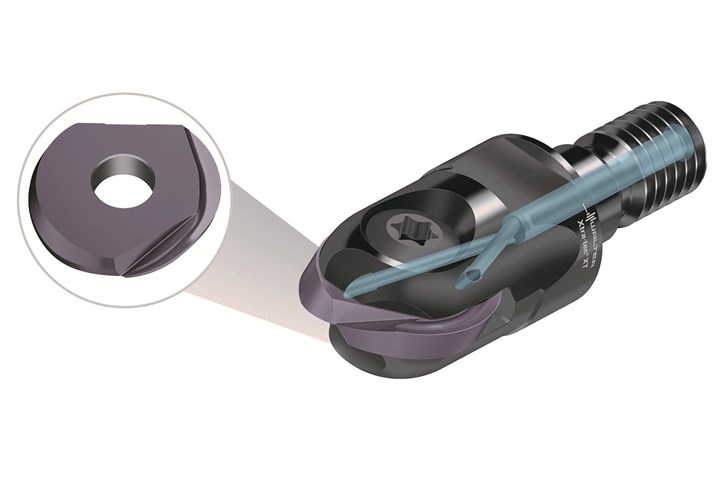Profile Milling Cutter Delivers Precision Machining, Optimized Tool Life for Molds
The new Walter USA Xtra·tec XT M5460 offers precise, cost-effective machining and optimize surface finishes for mold and die making, aerospace and energy industries.
Walter USA introduces the Xtra·tec XT M5460, a new profile milling cutter that delivers maximum precision, tool life and surface quality in precise machining of freeform surfaces and deep cavities such as molds.
The Xtra·tec XT M5460 has been specially designed for difficult materials, particularly for hard machining of steels up to 63 HRC. Alongside the geometries of Walter’s P3201 and P3204 indexable inserts, the company is now offering these inserts in its newest grade, WHH15X, for hard machining. In field tests, the M5460 with this latest grade reportedly achieved increases in tool life of up to 500%. The profile milling cutter is said to be effective in steels (ISO P), cast iron (ISO K), stainless steel (ISO M) and hard materials (ISO H). In addition to mold and die making, the product also offers advantages for the aerospace and energy industries.
Moreover, the profile milling cutter now also provides an internal coolant channel, enabling chip evacuation using compressed air or MQL. This is necessary for deep pockets, Walter points out.
Walter offers the Xtra·tec XT M5460 with both Weldon and cylindrical shanks, as well as with the industry-standard cylindrical modular interface. The company is initially launching the milling cutter for diameters: 3/8-1" and in metric from 8-32 mm.
Related Content
-
Laser Welding Versus Micro Welding
The latest battle in finely detailed restoration/repair of mold materials.
-
Advantages and Disadvantages of Copper and Graphite Electrodes
Both copper and graphite provide approximately the same end result, so it is important for a shop to consider the advantages and disadvantages of each material in order to discover what would work best in their shop floor environment.
-
The Benefits of Hand Scraping
Accuracy and flatness are two benefits of hand scraping that help improve machine loop stiffness, workpiece surface finish and component geometry.






.png;maxWidth=300;quality=90)






